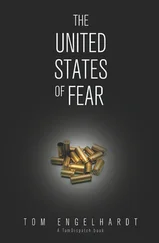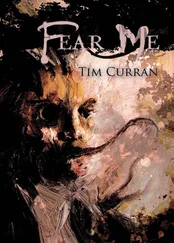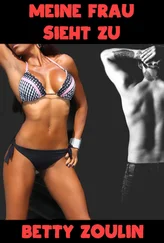Looming over the stage from behind was our elaborately painted backdrop depicting a plantation scene — an elegant mansion house surrounded by magnolia trees, among which gowned women and waistcoated gentlemen watched with benign amusement as a few typical Darkies danced a jig. We had three different backdrops that we used to great effect during the performance, but this was a masterpiece. Henry stood for some moments, regarding the scene with interest. As he did so, an utterly unexpected embarrassment began to rise in me. I wasn’t sure why; the figures were, after all, strictly a comic convention, and a universally employed one, at that. Still, I steered his attention elsewhere.
“We set up here,” I said. “Our chairs in a crescent like this. We step forward in turn, here, for solo pieces — songs, dances, banjo specialties, what have you. .” I stopped, then said, “You’re all right, are you?”
“Yes,” he said. He walked to the edge of the stage, looked out into the shadowed cavern, up, around. He turned back to the plantation backdrop again, took in the entire stage. He walked to stage left, then back across to stage right. His manner was that of a landlord, surveying a new property holding. His footfalls echoed in the empty house. As if registering this last fact, he executed a quick dance step on the boards at the front of the stage, and the pattern rippled through the hall like wavelets on a pond.
We returned to the dressing room; Henry sat on the divan next to his banjo in its sack, and I sat at the makeup table. I found myself fidgeting with a grease pencil, and I set it back down.
“Well,” I said, “is it what you expected?”
“It’s big,” he said. “How many people come to the shows?”
“The hall seats eight hundred.”
“Tickets are fifteen cents?”
“Yes they are,” I said, surprised that he had checked independently. “Let me tell you my idea of how to present you,” I went on. “Then you can tell me yours.”
I had come up with the notion of stationing him behind a large sheet, with lights in back of him projecting his shadow forward, so that the audience would see a dancing, outsized silhouette. This had a certain novelty value, and it answered one obvious challenge, although it left a number of others unaddressed. Still, I thought it was rather ingenious.
When I had outlined the idea, he gestured dismissively and said, “Why don’t I put on the greasepaint with the rest of you?”
“The greasepaint,” I said. This stopped me for a moment. He was already a Negro, if a fairly light-skinned one. Why would he need to apply the cork?
“You can’t present me as I am,” he said.
“No,” I said. “I cannot.”
“Right,” he said. “Well, the audience would think I was one of you.”
“One of us,” I said. “You mean a white man.”
“Yes,” he said. “Pretending to be what I am.”
Now I saw what he meant. A kind of double masquerade. It was an audacious proposition, even an elegant solution. Yet, as I mulled it, I felt uneasy. There was something very intimate about the transformation we underwent in the Virginia Harmonists. Whatever our individual differences, the assuming of the burnt-cork mask amounted to membership in a kind of brotherhood, or even a mystery cult, minus only the Masonic trappings. I felt oddly exposed by the idea of a Negro joining us in the ritual.
“My mother,” Henry continued, “told me, ‘If you want to hide something, leave it where everyone can see it.’”
Then he stood up and walked to the dressing table, touched the burnt-cork with one finger and, looking in the glass, painted a mustache on his upper lip with two quick swipes. Stepping back and regarding himself in the mirror, he laughed at his own reflection.
It was well into the afternoon, and I did not want to take more chance than I already had of his being discovered at the theater. I told him I would consider his idea, and if I could find a way of executing it soundly, we might give it a try. I told him I would need to discuss it with my partner. I gave him the address of, and directions to, my apartment, and we arranged to meet there in two days, after I’d had a chance to bring up the idea with Mulligan.
Before he left, he asked me about payment. I had anticipated this, in fact, and had given it a bit of thought. I was certain he could not have been making more than two dollars per day, playing on the street, based on what I had seen. The members of the Virginia Harmonists were paid quite well. Powell and Burke each drew sixty dollars per week, Eagan sixty-five, at his heated insistence. Mulligan, as cofounder and lead soloist, drew seventy-five, and as manager, and everything else, I took eighty. We earned substantially more when we traveled, although there were overhead expenses involved. Based on what I estimated that Henry earned, I offered to pay him four dollars for a night’s appearance with us. This money would come out of my own draw, as I did not want to ask the others to subsidize the experiment, at least not initially.
When I named the figure, he looked affronted, repeated the words “Four dollars?” and fixed me with a disappointed frown.
“Well,” I said, aware that it was a slightly low figure, “how much did you expect me to offer?”
“I won’t appear for less than ten dollars.” He gazed at me through his glassless spectacles.
“Ten dollars!” I said. This was outrageous, although I had to admire his cheek. That was nearly what Mulligan made for a night. “In no way will I pay you that kind of money. I will pay you five dollars and fifty cents, and no more than that, for one show only. If that show goes well — as I expect it to, mind you — and we feature you regularly, we can set a figure with which we are both pleased.”
He looked down at his banjo in its bag, nodded as he picked it up, and said, “That will be fine.” He stood up and shook my hand with a formality that was almost comic. I had the sense that he felt he had done well for himself. He said he would look forward to our meeting in two days, and then he left.
After he’d gone, my mind was awash with questions, all amounting to one question: Now what? How, really, could we present him onstage, given his race, without inviting trouble? If we did proceed, how to ensure that his secret would not somehow be found out? And how, indeed, could I introduce the idea to the others, and especially to Mulligan? Importing the fellow into the act, in whatever form, would upset a balance we had achieved through long practice and, eventually, habit.
There was the question of how to convince Mulligan to take a chance on a Negro performer. I knew that he was as discomfited by the parade of silly side acts as I was. Yet it would be difficult enough to sell him on the idea of adding another banjo player without handing him this very reasonable objection with which to kill the idea in its cradle. I thought that if I could secure a hearing for Henry, at least, then we could settle the details afterward. His presence and virtuosity would make the case for him.
There was another question, as well, that lurked underneath these. My years in the circus had trained me not to press an individual about his background — one’s talent and willingness to work were one’s passport. But this was not the circus. I was the proprietor, and I had the welfare of the troupe and its members’ livelihoods to answer for. I knew nothing at all about the fellow, except that he was a masterful musician and performer. And I was not sure that I wanted to know more. There was certainly the possibility that he was a criminal, or a runaway. Yet it was unlikely that a criminal or runaway would present himself for daily public scrutiny on the streets, much less on the stage of a theater. There was something about him that did not conform to any template I had encountered. But by the time these thoughts had formed themselves, I had already determined to stow them. We needed something new, and this would be something new. It involved a risk I felt we needed to run.
Читать дальше










